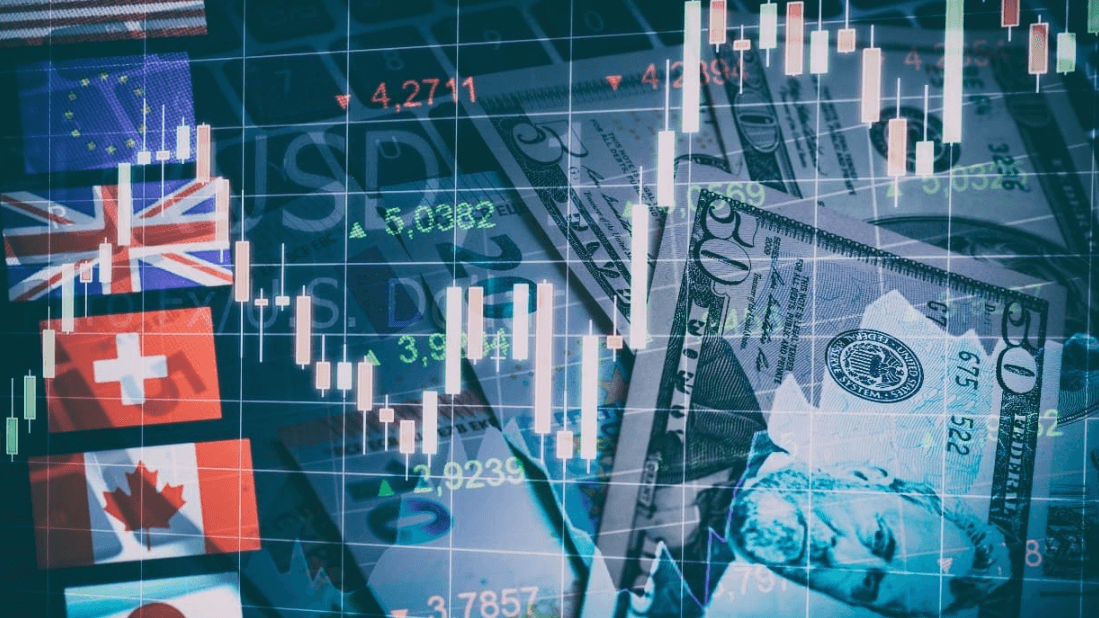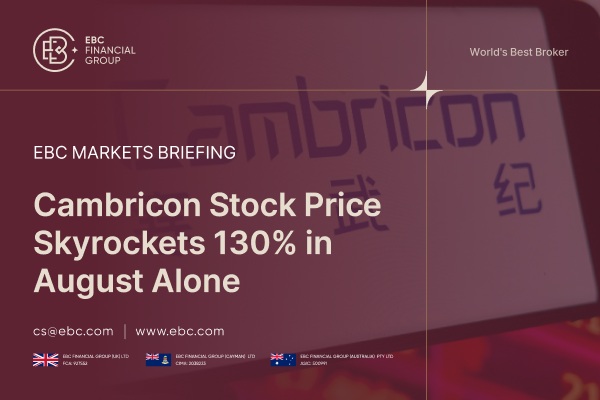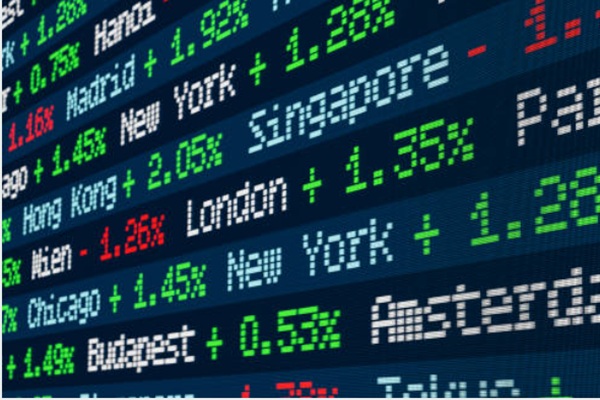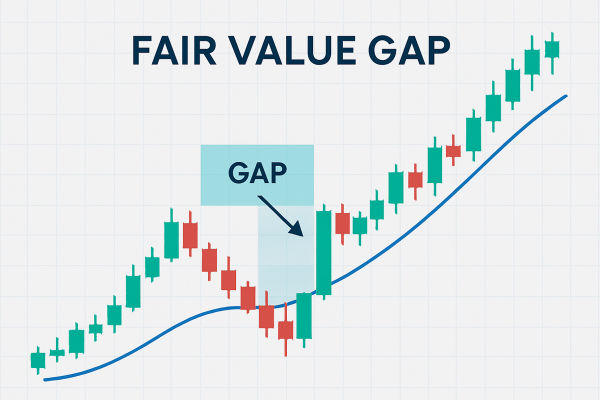Forex is the most traded instrument in the world; stocks are not something everyone needs to buy. But we have to cope with the FX market in some way. For example, if you want to travel to France, you have to convert your money into euros. Every time you buy a barrel of oil, the Chinese have to convert their yuan to dollars because crude oil is denominated in dollars. It's clear why forex has the most transactions globally. The foreign exchange market (Forex or FX) was formed in 1971 and is the youngest financial market with the largest trading volume. With a daily trading volume reaching $5 trillion, it surpasses stock futures and other markets, making it the world's economic center.
The foreign exchange market (Forex or FX) was formed in 1971 and is the youngest financial market with the largest trading volume. With a daily trading volume reaching $5 trillion, it surpasses stock futures and other markets, making it the world's economic center.
There are more than 30 forex markets worldwide, including major ones like London, New York, Tokyo, and Hong Kong. The primary currencies traded are the U.S. dollar, British pound, euro, and Japanese yen. Although more than ten currencies can be freely traded, the Chinese yuan is not included due to its limited free circulation.
The global forex market operates 24 hours a day, allowing investors worldwide to trade continuously. Unlike the stock market, the forex market allows for capital leverage, enabling investors to make large transactions with a small amount of money and without paying commissions or fees. It's a two-way market where you can profit from both buying and selling.
Common Transactions in the Forex Market
The most common transactions in the forex market are currency pair transactions, such as EUR/USD, USD/JPY, and GBP/USD. These transactions operate through currency exchange, with prices determined by supply and demand, economic data, political events, and interest rate levels. The market is divided into different trading sessions, including Asian, European, and North American sessions.
Characteristics of the forex market
| Characteristics |
Description |
| Highly mobile |
Most liquid market, high trades, numerous participants, minimal price fluctuations. |
| Open 24 hours |
The only 24/7 market, shifting between financial centers, enabling continuous trading. |
| Global |
Global market, spans countries and time zones, attracts traders worldwide. |
| Leveraged trading |
A global market spanning countries and time zones, drawing traders worldwide. |
| Low transaction costs |
Low costs; brokers often don't charge commissions, earning from bid/ask spreads. |
| Diverse currency pairs |
Offers diverse currency pairs, catering to varied trading preferences. |
Function of the Forex Market
The Forex Market function and is the main place for currency exchange. It allows individuals, businesses, and governments to buy, sell, and exchange currencies of different countries for international trade and financial transactions, providing for the smooth running of international economic and trade exchanges. And it provides support for international trade by allowing importing and exporting businesses to settle between different currencies. Not only does it help promote global trade and economic growth, but it is also a key medium for international capital flows. Cross-border investment activities such as foreign direct investment (FDI), stock, and bond investments all involve this market.
Prices in the forex market reflect the supply and demand for currency pairs. These prices provide information on the value of currencies and market expectations, which helps investors and policymakers make decisions. And by using financial market instruments, such as forward contracts and options, firms and investors can hedge their exposure to currency exchange rate fluctuations and protect themselves from the adverse effects of such fluctuations.
Their operation can have a positive impact on the stability of financial markets. Firstly, high liquidity and diversification help to diversify risk while also providing central banks with the tools to intervene in monetary policy to stabilize domestic currency and financial markets. It also attracts speculators to profit from currency trading, thus providing additional liquidity to the market while potentially increasing market volatility.
Forex market participant
It attracts a wide range of different types of participants, from individual investors to large financial institutions and government agencies. The main participants include:
Individual investors: These include retail forex traders, who participate in forex trading through internet-based platforms. Individual investors typically seek to make a profit and employ a variety of different trading strategies, such as day trading, trend trading, and fundamental analysis.
Banks: Large commercial banks are important participants, offering FX trading services to their clients and trading FX on their own accounts. Banks participate in the FX market to meet the needs of their clients and also trade their own capital for profit.
Central banks are the setters of national monetary policy, and they can influence the exchange rate of national currencies by intervening in the FX market. They also usually buy or sell national currencies to maintain currency stability.
Investment Funds and Institutional Investors: Investment funds, pension funds and other institutional investors participate in the FX market to diversify their portfolios and seek profits, such as long-term investments or hedging strategies.
Multinational Corporations: Multinational corporations trade FX to manage currency risk in their cross-border operations and need to exchange FX to pay suppliers or receive proceeds from international sales.
Forex broker: an intermediary that connects buyers and sellers, provides a forex trading platform and trade execution services, and earns profits from trading commissions or spreads. Retail forex brokers specialize in providing forex trading services to individual investors. Leverage trading is usually offered, allowing small-capital participants to make large transactions.
International Institutions: International financial institutions such as the International Monetary Fund (IMF) and the World Bank trade currencies in the market to manage foreign exchange reserves and support international financial stability.
Type of Forex Markets
| Level |
Description |
| Global |
The world's largest and most liquid market, traded in major financial centers. |
| Internet Retail |
Individual investors participate in forex trading via an internet platform. |
| Forex Cross Market |
Currency pairs excluding the US dollar. |
| Forex Futures Market |
Contracts traded for future fulfillment. |
| Forex Options Market |
Contracts offering the right to buy without obligation. |
| Forex Exchange Market |
Centralized trading platforms with clearing services. |
Best trading time
Before starting to operate forex, many people will have doubts: 24-hour market, is it necessary to stare at the disk for 24 hours? Currencies are so many, from which to start?
It is recommended that you first specialize in the currency pairs to find a suitable time to enter the trade. Because the FX market is different between countries, there is a time difference. The opening times will, of course, be different so that you don't spend a lot of time and energy watching the market for nothing.
To understand the best time to trade, we should first briefly recognize the three major forex markets: London, New York, and Tokyo.
Their trading hours are the same as the intensive area of the world's banks for foreign exchange transactions; market fluctuations are also the most frequent. Investors who choose this period of time to trade the opportunity to make money are relatively more.
Beijing time, 8:00 a.m. to 4:00 p.m., is the Tokyo foreign exchange exchange trading session. During this period, mainly the Japanese yen, the australian dollar, and the New Zealand dollar market fluctuations will be more active.
Beijing time, 3:30 pm to 12:30 pm, is the London foreign exchange trading session; this period is mainly for the euro, the pound, and Switzerland; the French franc market volatility will be more active.
Beijing time: 8:00 p.m. to 4:00 a.m. The next morning is the New York foreign exchange trading session; this period is mainly the U.S. dollar, and canadian dollar market fluctuations will be more active.
If you want to know a more specific gold trading time, you can look at their overlap time.
Asia, the European market overlap time in Beijing is 3:00 pm–4:00 pm, corresponding to the above-mentioned related currency pairs. This time, the Japanese yen, Australian dollar, New Zealand dollar, euro, pound, Switzerland, and franc are worth paying attention to.
The European and American markets overlap at 8 p.m.–12 p.m. GMT, which corresponds to the relevant currency pairs mentioned above, and during this time there will be the euro, British pound, Swiss franc, US dollar, and Canadian dollar worth paying attention to.
A special reminder that the European weekly market overlaps trading hours but is also the most intensive period of foreign exchange transactions by national banks. This time, global foreign exchange market transactions are the most frequent, and volatility is also the largest. For Asian foreign exchange investors, this time is just after work at home. Those lying down to rest can also watch the disk time.
Foreign exchange market trading hours
| Financial Center |
Market Opening Time (Beijing Time) |
Closing Time (Beijing Time) |
| Tokyo (Japan) |
8:00 AM |
4:00 PM |
| London (UK) |
3:30 PM |
12:30 AM |
| New York (USA) |
8:00 PM |
4:00 AM |
| Hong Kong (China) |
9:00 AM |
4:00 PM |
Disclaimer: This material is for general information purposes only and is not intended as (and should not be considered to be) financial, investment, or other advice on which reliance should be placed. No opinion given in the material constitutes a recommendation by EBC or the author that any particular investment, security, transaction, or investment strategy is suitable for any specific person.


 The foreign exchange market (Forex or FX) was formed in 1971 and is the youngest financial market with the largest trading volume. With a daily trading volume reaching $5 trillion, it surpasses stock futures and other markets, making it the world's economic center.
The foreign exchange market (Forex or FX) was formed in 1971 and is the youngest financial market with the largest trading volume. With a daily trading volume reaching $5 trillion, it surpasses stock futures and other markets, making it the world's economic center.



